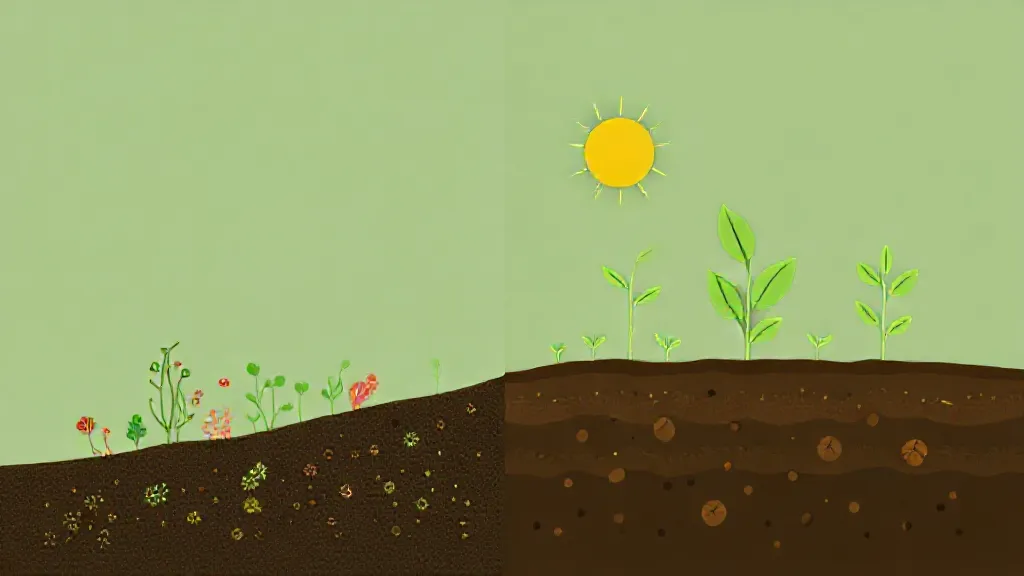Soil health is a critical component of sustainable agriculture and ecosystem stability. The introduction of pesticides into farming practices has raised significant concerns about their long-term effects on soil health. Pesticides, which include herbicides, insecticides, and fungicides, are designed to eliminate pests that threaten crops.
However, their application often leads to unintended consequences for the soil microbiome, nutrient cycling, and overall soil structure.
The Role of Soil Microorganisms
Soil is a living ecosystem, teeming with microorganisms that play vital roles in nutrient cycling, organic matter decomposition, and soil structure maintenance. Pesticides can disrupt these microbial communities, leading to a decline in biodiversity.
Research has shown that certain pesticides can be toxic to beneficial soil bacteria and fungi, which are essential for breaking down organic matter and making nutrients available to plants. For instance, studies have indicated that glyphosate, a widely used herbicide, can significantly reduce the population of beneficial bacteria in the soil, thereby impairing the soil's ability to support healthy plant growth.
Nutrient Availability and Soil Fertility
The application of pesticides can also affect the availability of essential nutrients in the soil.
Pesticides can alter soil pH and disrupt the balance of nutrients, leading to deficiencies that can affect crop yields. For example, a study published in the journal "Agriculture, Ecosystems & Environment" demonstrated that long-term use of certain fungicides resulted in reduced levels of nitrogen and phosphorus in the soil, both of which are critical for plant development. This nutrient imbalance can lead to increased reliance on chemical fertilizers, creating a cycle of dependency that further degrades soil health.
Soil Structure and Erosion
Pesticides can impact soil structure, which is crucial for water retention and aeration. The application of certain chemical treatments can lead to soil compaction, reducing its porosity and making it harder for roots to penetrate. Compacted soil also increases the risk of erosion, as water runoff can wash away topsoil, leading to loss of fertile land.
Furthermore, when soil structure is compromised, it can lead to decreased water infiltration, exacerbating drought conditions and negatively impacting crop resilience.
Persistence of Pesticides in Soil
Another significant concern is the persistence of pesticides in the soil environment. Some pesticides can remain in the soil for extended periods, potentially leading to cumulative effects on soil health.
Research has shown that residues of certain pesticides can persist for years, affecting not only the immediate area of application but also surrounding ecosystems. This persistence can lead to bioaccumulation in soil organisms, which can have cascading effects up the food chain, ultimately impacting human health and biodiversity.
Alternatives to Chemical Pesticides
Given the potential negative impacts of chemical pesticides on soil health, there is a growing interest in alternative pest management strategies.
Integrated Pest Management (IPM) combines biological, cultural, and chemical practices to manage pests more sustainably. Techniques such as crop rotation, cover cropping, and the use of beneficial insects can reduce the reliance on chemical pesticides while maintaining healthy soil ecosystems. These practices promote biodiversity and enhance soil resilience, contributing to long-term agricultural sustainability.
Regulatory Framework and Research Needs
The effects of pesticides on soil health have led to increased scrutiny and regulation in many countries. However, there is still a need for more comprehensive research to fully understand the long-term implications of pesticide use on soil ecosystems. Policymakers and agricultural stakeholders must prioritize funding for studies that explore the interactions between pesticides, soil health, and crop productivity.
This research is vital for developing guidelines that balance pest control with the preservation of soil health.
Conclusion: A Call for Sustainable Practices
In conclusion, the effects of pesticides on soil health are complex and multifaceted. While they serve an important role in modern agriculture, their impact on soil ecosystems cannot be overlooked.
Sustainable farming practices that minimize pesticide use and promote soil health are essential for ensuring food security and environmental sustainability. As awareness of these issues grows, it is imperative that farmers, researchers, and policymakers work together to develop solutions that protect our vital soil resources.
Image Prompt
Generate an image depicting a vibrant soil ecosystem, highlighting the interaction between soil microorganisms, healthy crops, and the effects of pesticides, showcasing both the benefits and challenges of agricultural practices.
